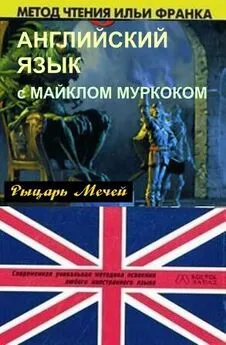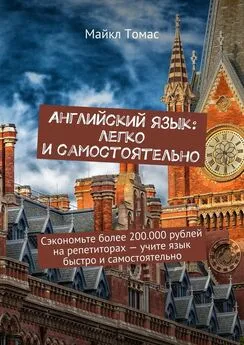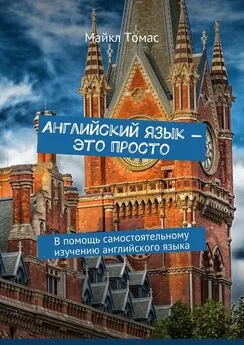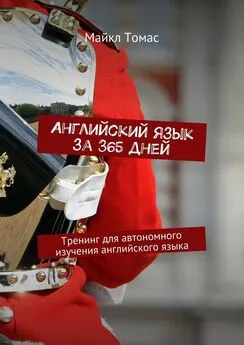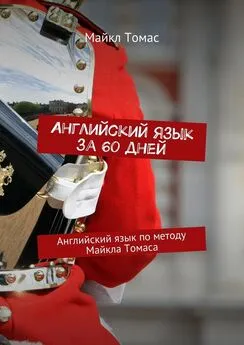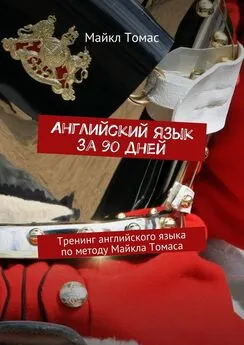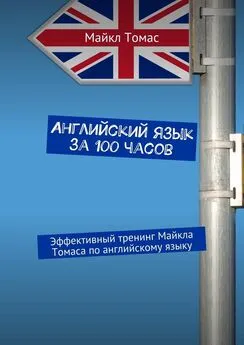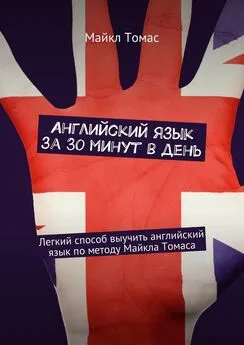Майкл Муркок - Английский язык с М. Муркоком
- Название:Английский язык с М. Муркоком
- Автор:
- Жанр:
- Издательство:неизвестно
- Год:неизвестен
- ISBN:нет данных
- Рейтинг:
- Избранное:Добавить в избранное
-
Отзывы:
-
Ваша оценка:
Майкл Муркок - Английский язык с М. Муркоком краткое содержание
В книге предлагается произведение "Рыцарь Мечей" Майкла Муркока, адаптированные (без упрощения текста оригинала) по методу Ильи Франка. Уникальность метода заключается в том, что запоминание слов и выражений происходит за счет их повторяемости, без заучивания и необходимости использовать словарь. Пособие способствует эффективному освоению языка, может служить дополнением к учебной программе. Предназначено для студентов, для изучающих английский язык самостоятельно, а также для всех интересующихся английской культурой.
Метод чтения Ильи Франка
Английский язык с М. Муркоком - читать онлайн бесплатно полную версию (весь текст целиком)
Интервал:
Закладка:
`The Knight of the Swords?
`I believe he is known by that title in the distant south (полагаю, он известен под этим титулом на дальнем юге). The king seemed deeply disturbed now (король казался глубоко встревоженным теперь). He licked his lips (он облизнул губы). `I am King Temgol-Lep (я король Темгол-Леп). This is my city, Arke (это мой город, Арк). He waved his thin hand (он обвел /кругом/ своей тонкой рукой). `These are my people, the Ragha-da-Kheta (это мои подданные, рага-да-кета). This land is called Khoolocrah (эта страна называется Кулокрах). We, too, soon shall die (мы тоже вскоре умрем).
`Why so (отчего же)?
`It is Mabden time (это время мабденов). Arioch decides (/так/ решает Ариох). The king shrugged his narrow shoulders (король пожал узкими плечами). `Arioch decides. Soon the Mabden will come and destroy us (скоро мабдены придут и уничтожат нас).
`You will fight them, of course (выбудете с ними сражаться, конечно)?
distant [ˈdɪst (ə) nt] destroy [dɪsˈtrɔɪ]
`I believe he is known by that title in the distant south. The king seemed deeply disturbed now. He licked his lips. `I am King Temgol-Lep. This is my city, Arke. He waved his thin hand. `These are my people, the Ragha-da-Kheta. This land is called Khoolocrah. We, too, soon shall die.
`Why so?
`It is Mabden time. Arioch decides. The king shrugged his narrow shoulders. `Arioch decides. Soon the Mabden will come and destroy us.
`You will fight them, of course?
`No. It is Mabden time. Arioch commands (Ариох /так/ велит). He lets the Ragha-da-Kheta live longer because they obey him, because they do not resist him (он позволяет рага-да-кета жить дольше, потому что они повинуются ему, потому что не сопротивляются ему). But soon we shall die.
Corum shook his head (покачал головой).
`Do you not think that Arioch is unjust to destroy you thus (вы не думаете, что Ариох несправедлив, уничтожая вас таким образом)?
`Arioch decides.
It occurred to Corum that these people had not once been so fatalistic (Коруму пришло в голову, что эти люди когда-то не были столь фаталистичны = покорны судьбе). Perhaps they, too, were in a process of degeneration, caused by the Knight of the Swords (возможно, они также были в процессе = пережили упадок, вызванный Рыцарем Мечей).
`Why should Arioch destroy so much beauty and learning as you have here (зачем Ариоху уничтожать такую красоту и знания, которые у вас здесь)?
`Arioch decides.
obey [ə (u) ˈbeɪ] unjust [ʌnˈʤʌst] fatalistic [, feɪtəˈlɪstɪk]
`No. It is Mabden time. Arioch commands. He lets the Ragha-da-Kheta live longer because they obey him, because they do not resist him. But soon we shall die.
Corum shook his head.
`Do you not think that Arioch is unjust to destroy you thus?
`Arioch decides.
It occurred to Corum that these people had not once been so fatalistic. Perhaps they, too, were in a process of degeneration, caused by the Knight of the Swords.
`Why should Arioch destroy so much beauty and learning as you have here?
`Arioch decides.
King Temgol-Lep seemed to be more familiar with the Knight of the Swords and his plans than anyone Corum had yet met (казалось, король был лучше знаком с Рыцарем Мечей и его планами, чем кто-либо, встреченный ранее Корумом). Living so much closer to his domain, perhaps they had seen him (живя так близко от его владений, возможно, они /даже/ видели его).
`Has Arioch told you this himself (Ариох сам сказал вам это)?
`He has spoken through our wise ones (он говорил через наших мудрецов).
`And the wise ones — they are certain of Arioch's will (а ваши мудрецы — они уверены в воле = что такова воля Ариоха)?
`They are certain (они уверены).
Corum sighed (вздохнул).
`Well, I intend to resist his plans (что ж, я намерен препятствовать /осуществлению/ его планов). I do not find them agreeable (я не нахожу их приемлемыми = они меня не устраивают)!
King Temgol-Lep seemed to be more familiar with the Knight of the Swords and his plans than anyone Corum had yet met. Living so much closer to his domain, perhaps they had seen him.
`Has Arioch told you this himself?
`He has spoken through our wise ones.
`And the wise ones — they are certain of Arioch's will?
`They are certain.
Corum sighed.
`Well, I intend to resist his plans. I do not find them agreeable!
King Temgol-Lep drew his lids over his eyes and trembled slightly (прикрыл веками глаза и вздрогнул слегка; to draw over — натягивать поверх, накрывать ). The warriors looked at him nervously (воины посмотрели на него беспокойно). Evidently they recognised that the king was displeased (очевидно, они понимали, что король недоволен).
`I will speak no more about Arioch (я больше не буду говорить об Ариохе), King Temgol-Lep said. But as our guest we must entertain you (но, как нашего гостя, мы должны развлекать тебя). You will drink some wine with us (ты выпьешь вина с нами).
`I will drink some wine. I thank you.
Corum would have preferred food to begin with (Корум предпочел бы начать с еды = поесть сначала), but he was still cautious of giving offence to the Ragha-da-Kheta (но по-прежнему опасался обидеть рага-да-кета; cautious — осторожный, осмотрительный; to give offence — оскорбить, обидеть ), who might yet supply him with the boat he needed (которые могли предоставить ему лодку, в которой он нуждался; to supply with — снабжать ).
displeased [dɪsˈpli:zd] entertain [, entəˈtaɪn]
King Temgol-Lep drew his lids over his eyes and trembled slightly. The warriors looked at him nervously. Evidently they recognised that the king was displeased.
`I will speak no more about Arioch, King Temgol-Lep said. But as our guest we must entertain you. You will drink some wine with us.
`I will drink some wine. I thank you.
Corum would have preferred food to begin with, but he was still cautious of giving offence to the Ragha-da-Kheta, who might yet supply him with the boat he needed.
The king spoke to some servants who were waiting in the shadows near the door into the palace (король сказал /что-то/ слугам, ждавшим в тени у двери, /ведущей/ во дворец). They went inside (они вошли внутрь). Soon they returned with a tray on which were tall, thin goblets and a golden jug (вскоре они вернулись с подносом, на котором были высокие тонкие бокалы и золотой кувшин). The king reached out and took the tray in his own hands, balancing it on his knee (король потянулся и взял поднос в свои руки, удерживая его на колене; to balance — сохранять равновесие; качаться ). Gravely, he poured wine into one of the cups and handed it to Corum (серьезно = с мрачным видом он налил вино в один из бокалов и подал его Коруму; cup — чаша, кубок ). Corum stretched out his left hand to receive the goblet (Корум протянул левую руку, чтобы взять бокал; to receive — получать, принимать ).
The hand quivered (рука задрожала).
Corum tried to control it, but it knocked the goblet away (Корум попытался управлять ей, но она отшвырнула бокал; to knock — ударять, бить ). The king looked startled and began to speak (король выглядел испуганным, принялся /что-то/ говорить). The hand plunged forward and its six fingers seized the king's throat (рука бросилась вперед, и ее шесть пальцев вцепились в горло короля; to plunge — нырять; бросаться вперед ). King Temgol-Lep gurgled and kicked as Corum tried to pull the Hand of Kwll away (король Темгол-Лепа хрипел и дергал ногами, а Корум пытался оторвать/оттянуть руку Кулла; to gurgle — булькать, журчать ).
poured [pɔ:d] receive [rɪˈsi:v] gurgled [ˈɡə: ɡld]
The king spoke to some servants who were waiting in the shadows near the door into the palace. They went inside. Soon they returned with a tray on which were tall, thin goblets and a golden jug. The king reached out and took the tray in his own hands, balancing it on his knee. Gravely, he poured wine into one of the cups and handed it to Corum. Corum stretched out his left hand to receive the goblet.
The hand quivered.
Corum tried to control it, but it knocked the goblet away. The king looked startled and began to speak. The hand plunged forward and its six fingers seized the king's throat. King Temgol-Lep gurgled and kicked as Corum tried to pull the Hand of Kwll away.
But the fingers were locked on the throat (но пальцы намертво вцепились в горло; to lock — запирать/ся/; сжимать, стискивать ). Corum could feel himself squeezing the life from the king (Корум чувствовал, как он выдавливал жизнь из = как жизнь покидает короля).
Corum shouted for help before he realised that the warriors thought that he was attacking the king on his own volition (Корум громко звал на помощь, пока не понял, что воины думают, будто он нападает на короля по своей воле; volition — волевой акт, воля, хотение ). He drew his sword and hacked around him as they attacked with their oddly-wrought clubs (он вытащил меч и размахивал им вокруг себя, когда они нападали /на него/ со своими странно сделанными = причудливыми дубинками; to hack — рубить, разрубать; wrought — выделанный, обработанный; кованый ). They were plainly unused to battle, for their actions were clumsy and without proper co-ordination (они явно не привыкли к битве, так как их действия неловкими и без должного согласования = несогласованными).
Читать дальшеИнтервал:
Закладка:
